Rose care in Garden Centers
adlumia
18 years ago
Related Stories
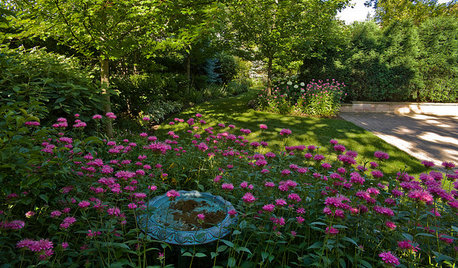
LANDSCAPE DESIGNExuberant Self-Seeders for Gorgeous, Easy-Care Gardens
Keep weeds down, color high and maintenance low with beautful plants that sow themselves
Full Story
LIME FOLIAGE16 Stunners From an English Garden Center
Get the abundant, overflowing look of an English garden with these hardworking spring-blooming plants and flowers
Full Story
EXTERIORSCare and Training for a Vine-Covered Home
Love the look but don’t want the ruin? Learn how to have vine-draped walls without all the cracks and crumbling
Full Story
WINTER GARDENINGPruning Secrets for Exquisite Roses
Encourage gorgeous blooms year after year with this time-tested advice on how to prune your rosebush in winter for health and shape
Full Story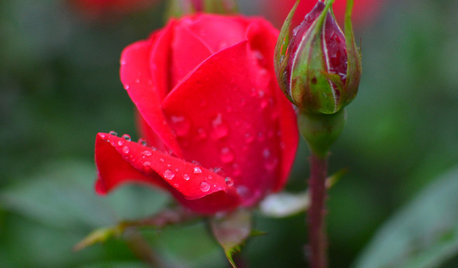
GARDENING GUIDESGreat Design Plant: Knock Out Roses
As glorious as their high-maintenance kin for a fraction of the work, Knock Out roses make even beginners look like garden stars
Full Story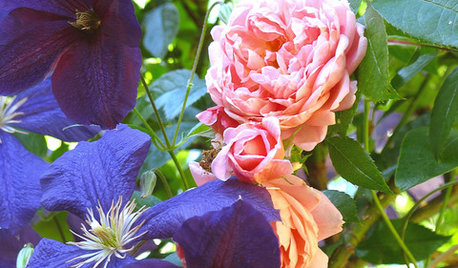
PLANTING IDEASGreat Garden Combo: Rose + Clematis for Small-Space Impact
We all need somebody to lean on. And when a rose supports a climbing vine, the results can totally transform a small garden
Full Story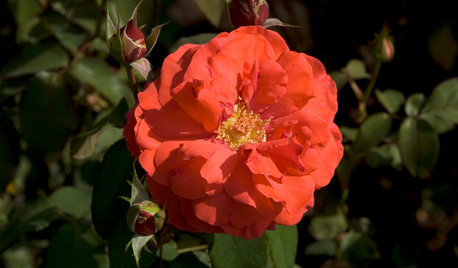
GARDENING GUIDES6 Captivating Roses for an Alluringly Fragrant Garden
Perfume your garden with aromas from richly spicy to lightly sweet, without sacrificing an inch of color
Full Story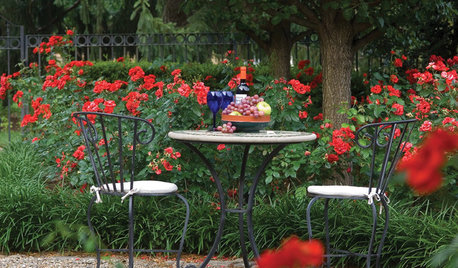
GARDENING GUIDES5 Red Roses to Stir Garden Passions
Show your devotion to color, scent and more with these regal landscape beauties
Full Story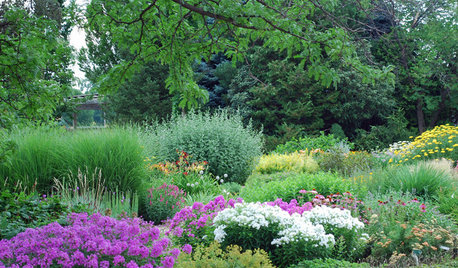
LANDSCAPE DESIGNTake Your Garden on a Rural Route With Plant-Dominant Designs
Let plants take center stage for a garden that recalls idyllic pastures fashioned by nature's hand
Full Story
GARDENING GUIDESTree Care: Common Tree Diseases and What to Do About Them
Learn to recognize trees that may be affected by diseases or pests so you can quickly take action
Full StorySponsored






gardengal48 (PNW Z8/9)
Ron_B
Related Professionals
Richmond Heights Landscape Architects & Landscape Designers · Seabrook Landscape Architects & Landscape Designers · Washington Landscape Architects & Landscape Designers · Dedham Landscape Contractors · Fairfield Landscape Contractors · Kettering Landscape Contractors · Louisville Landscape Contractors · Lynchburg Landscape Contractors · National City Landscape Contractors · Pikesville Landscape Contractors · Forest Hill Landscape Contractors · Alameda Driveway Installation & Maintenance · Glenview Driveway Installation & Maintenance · Quincy Driveway Installation & Maintenance · Westland Driveway Installation & MaintenanceadlumiaOriginal Author
habitat_gardener
Ron_B
gardengal48 (PNW Z8/9)
debinca1
Ron_B
michaelhampton
sam_md
Ron_B
annabellethomp
Ron_B
adlumiaOriginal Author
vouts